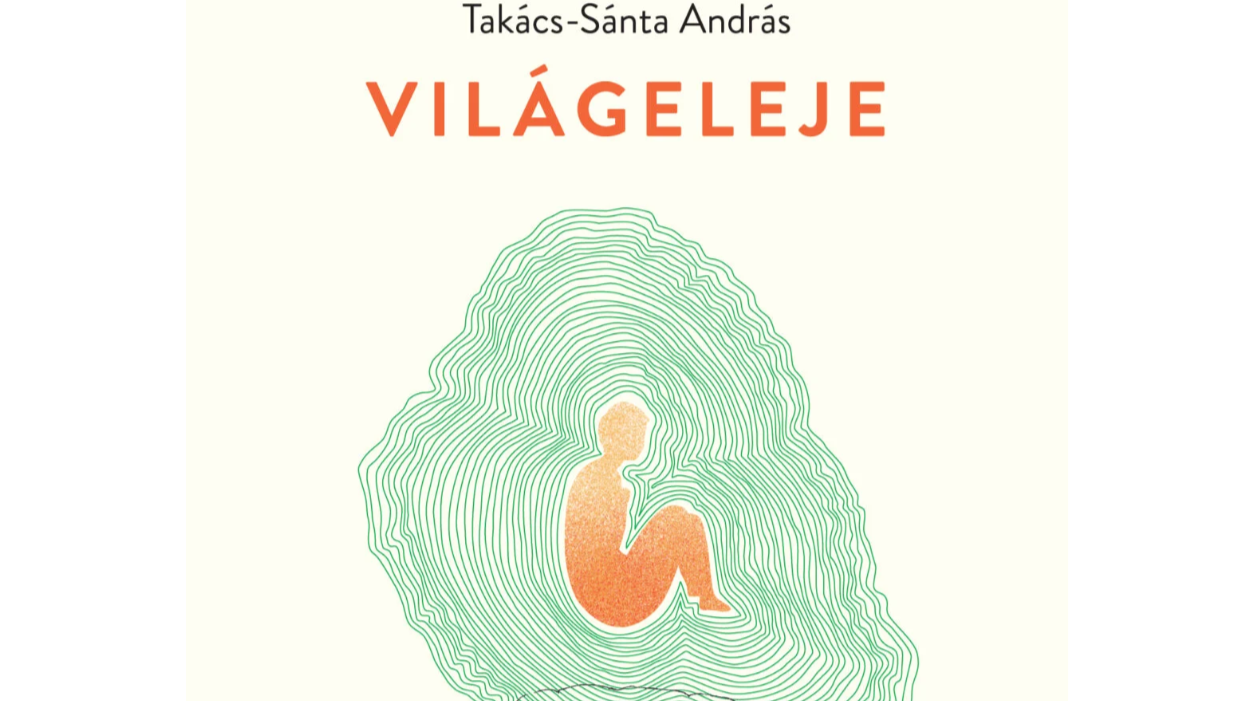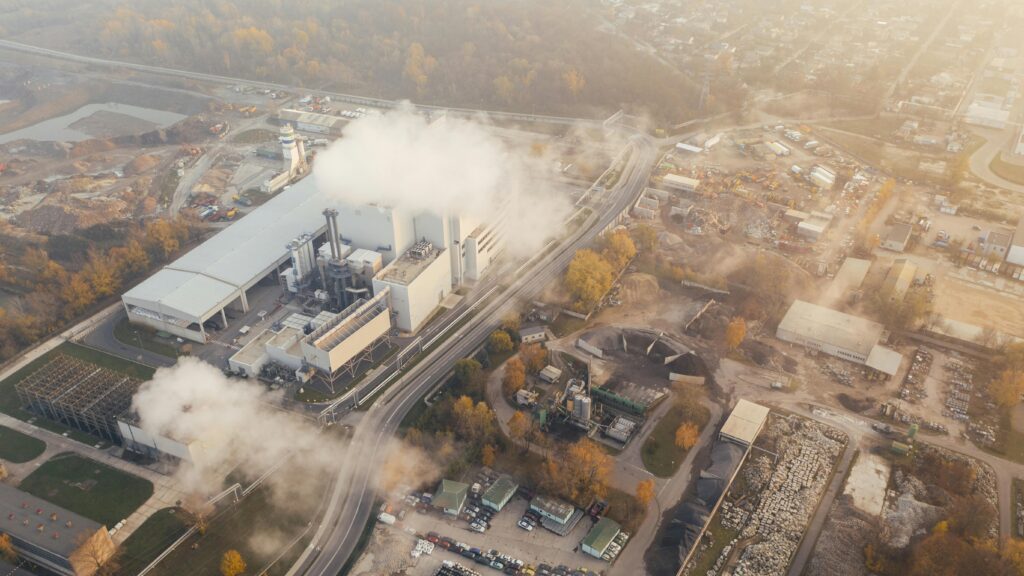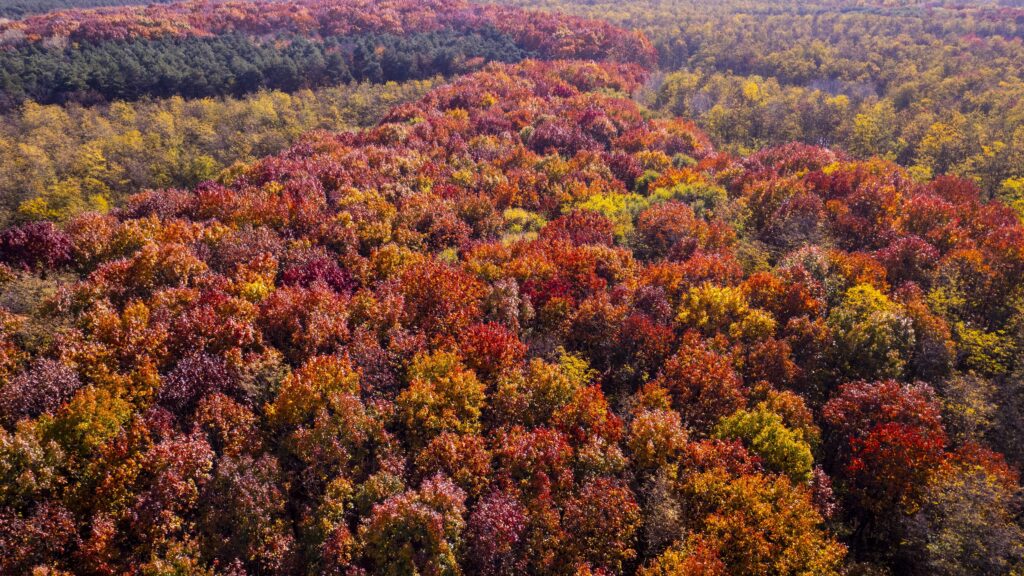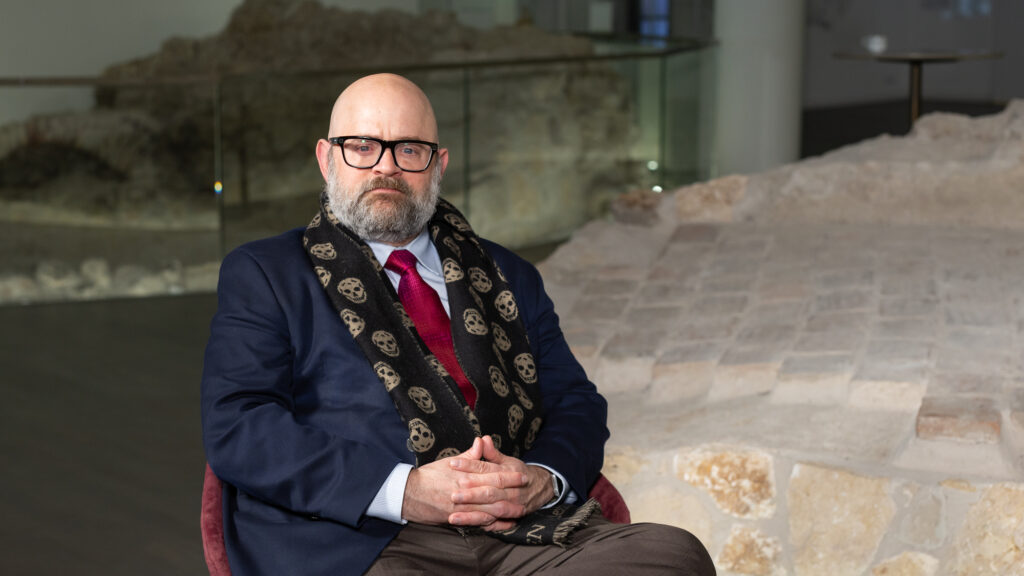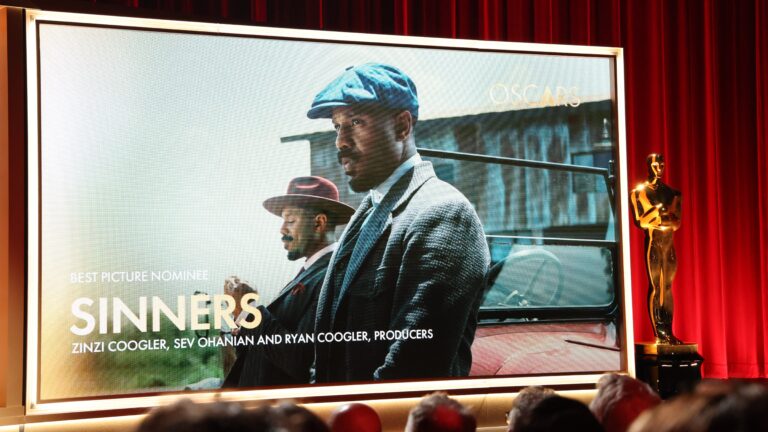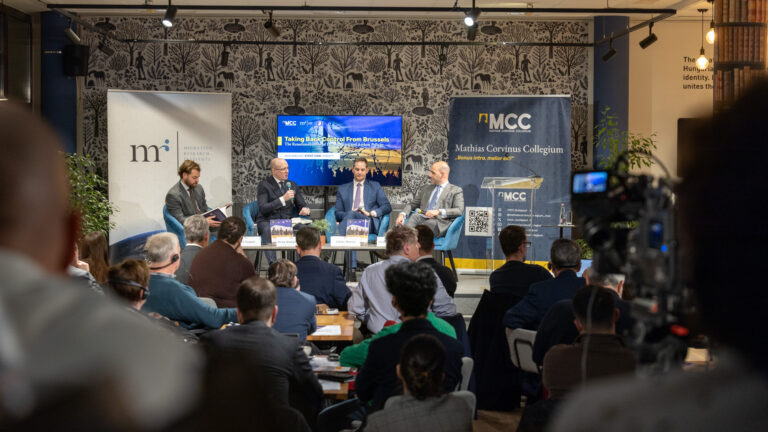The following is an adapted version of an article written by Sára Gacsályi, originally published in Magyar Krónika.
Should we respond to the climate crisis with a head-in-the-sand policy or disaster anticipation? András Takács-Sánta shows us a third option: the path of hope in action, of building a new, ecological society.
The climate crisis is a real, serious problem. More and more people are experiencing an increasingly intense anxiety about the future of their children while reading articles about recent research or even doing everyday things like cooking: violá, another empty can of sour cream to throw into the waste bin. In every aspect of our lives, we can see trouble. After this realization, we find ourselves at a crossroads, and it seems as if both paths that present themselves lead us down the wrong one.
On the one hand, we can try to pretend that nothing has changed, bury our heads in the sand, and go on with our lives, knowing deep down that we are going in the wrong direction. On the other hand, we can decide to try to accept that the end is near, there is nothing we can do, and that we can at most slow the decline and delay the destruction of the world.
There is, however, a third way, which we hear so little about: the way of hope in action. András Takács-Sánta presents this very path in his book, The Beginning of the World.
The short volume, collecting 60 micro-essays, can be finished in one sitting, or, following the advice of author András Lányi, who provided the inside cover of the book, it can be consumed ‘with a spoonful every evening to combat climate anxiety’. Maybe the two will happen together, one after the other—it is a reading that is worth leafing through over and over again. The successive essays, like pearls in a necklace, are valuable individually, yet stronger together: closely interlinked thoughts that together bring us a picture of an alternative present, a possible future.
‘We need to accept that we live in an era of rapid and unpredictable change, to which the ecological crisis is a major contributor. At worst, an ecological collapse will turn our world upside down. At best, we will pre-empt it and dismantle our market-consumer civilization ourselves—building a new ecological society in the process,’ the book says, among others. This short quote demonstrates well that the author takes himself and his subject seriously and takes us, the readers, seriously too.
‘We need to accept that we live in an era of rapid and unpredictable change, to which the ecological crisis is a major contributor’
Throughout his essays, the author maintains a sober approach and is grounded in reality: that the world is in trouble. At the same time, he encourages us to ‘not be afraid to face the problems of our world—but to spend more time healing.’ In the essays, he highlights some of the nuances of the much-talked-about issues surrounding the climate crisis and tries to clarify the misunderstandings. He also provides personal examples to illustrate how we can start as healers. The practical advice helps because, even though we are familiar with many of them, in this volume, between two scientific claims, they are given a very different emphasis from that of a recipe and a household trick in the pages of lifestyle magazines.
The Beginning of the World also responds to our emotional needs. It skillfully brings together personal experience, scientific arguments, and the fears and doubts we all have. It gives space to the human aspect. But it also offers us the chance to transcend, at the level of action, our everyday weaknesses, both individual and human.
It is an empowering read that reminds us that we do not need to, and perhaps should not, believe that we are living in the best of all worlds. In a way, this is a natural impression, since we have been learning for years in history, chemistry, IT, and other subjects how far humanity has come from and how advanced material conditions have become. But we tend to forget that for all this we have given and continue to give away the species of animals and plants, the air and water that sustain us.
This book urges us to choose real action over bargaining, to take action for change, and then we will have something to hope for. If we need inspiration on how to start on this journey, we should really take some time to immerse ourselves in this volume.
In a recent interview with Magyar Krónika, the author of The Beginning of the World said: ‘It is no coincidence that the subtitle of the book is Searching for a Good Life in an Age of Ecological Crisis. The word ‘searching’ refers to a central message: we need to reassess the concept of a good life. This is step zero. A poster would say that there is a way forward, a chance to build an ecological civilization, but it requires rethinking a lot of things from the bottom up and acting from there. Small communities organized in networks can do it. They are the only ones, if only because we can hardly expect radical change from above.’
Related articles:
Click here to read the original article.

